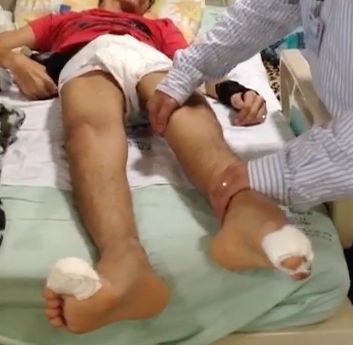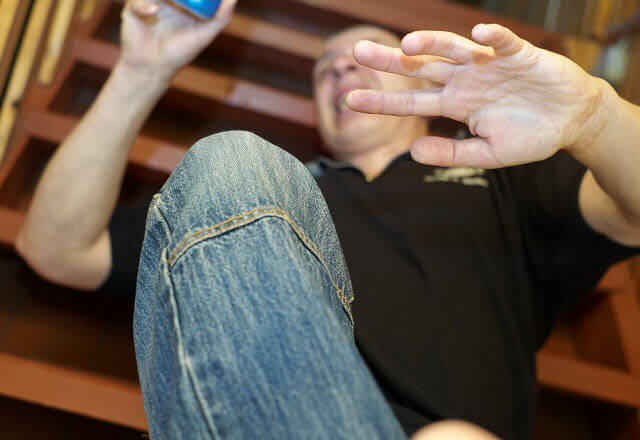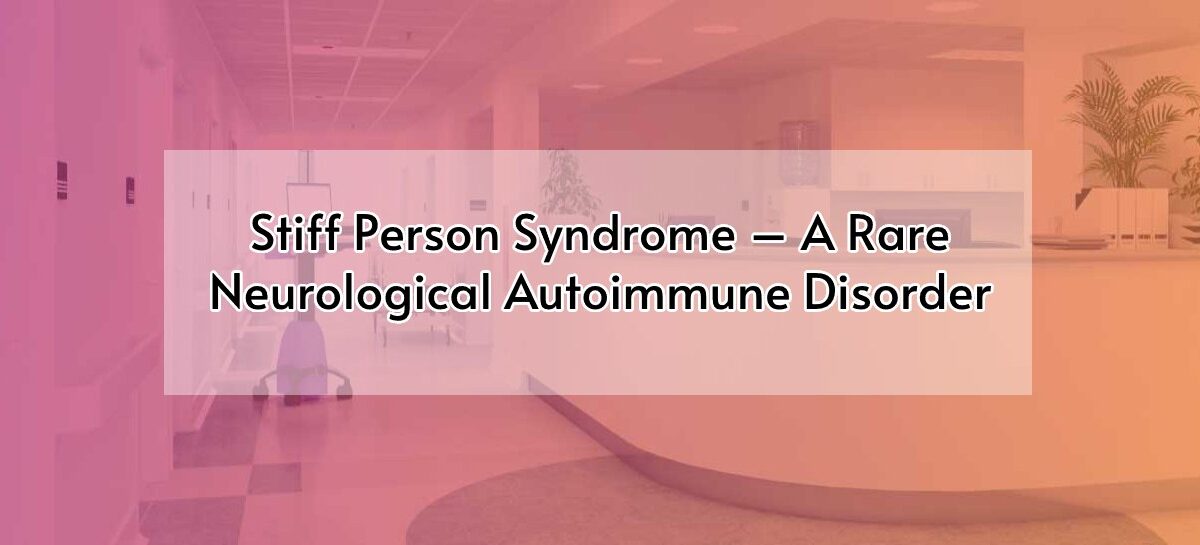Stiff-person syndrome
It causes progressive muscle stiffness and painful spasms that can be triggered by a variety of things including sudden movement cold temperature or unexpected loud noises. SPS is characterized by fluctuating muscle rigidity in the trunk and limbs and a heightened sensitivity to stimuli such as noise touch and emotional distress which can set off muscle spasms.

Autologous Hematopoietic Stem Cell Transplantation For Stiff Person Spectrum Disorder Neurology
SPS is labeled as a rare disease.

. SPS is strongly correlated with autoimmune diseases and it is usual to find high titers of antibodies against acid decarboxylase GAD65. Stiff person syndrome SPS is a neurological disease with autoimmune features. Muscle spasms can be so violent they can dislocate joints and even break bones.
But more people are affected than reported due to misdiagnoses. Symptoms may include extreme muscle stiffness rigidity and painful spasms in the trunk and limbs severely impairing mobility. Learn more about the treatment and outlook for the condition here.
Medications and immunotherapy maybe prescribed with aqua occupational and physical therapy. Symptoms include stiffening in the torso and limbs along with episodes of severe muscle spasms. The stiffness primarily affects the truncal muscles and is superimposed by spasms resulting in postural deformities.
Muscle rigidity sporadic muscle spasms and chronic muscle pain characterize SPS. Stiff-person syndrome SPS also known as stiff-man syndrome SMS 1 is a rare neurologic disorder of unclear cause characterized by progressive rigidity and stiffness. Stiff-person syndrome SPS is a rare neurological disorder with features of an autoimmune disease.
Stiff person syndrome SPS is a rare autoimmune neurological disorder. Stiff person syndrome SPS is a very rare disease affecting only one or two people per million. Abnormal postures often hunched over and stiffened are characteristic of.
Why Choose Johns Hopkins. Stiff-person syndrome SPS is a rare acquired neurological disorder characterized by progressive muscle stiffness rigidity and repeated episodes of painful muscle spasms. Certain cancers including breast lung kidney thyroid colon and Hodgkins lymphoma.
Stiff person syndrome is more likely seen in people with certain types of diseases including. Symptoms include muscle spasms hyper-rigidity debilitating pain and chronic anxiety. Stiff-person syndrome SPS is a rare and disabling central nervous system disorder with no satisfactory treatment.
Symptoms include muscle spasms and rigidity. Stiff person syndrome SPS is a rare progressive syndrome that affects the nervous system specifically the brain and spinal cord. An autoimmune and neurological disorder that causes rigidity and spasms in the trunk and limbs.
Muscular rigidity often fluctuates ie grows worse and then improves and usually occurs along with the muscle spasms. Spasms can generate enough force to fracture bone. Autoimmune disorders including diabetes thyroiditis vitiligo and pernicious anemia.

New Center For Stiff Person Syndrome Johns Hopkins Medicine

U8vxjacyy9obgm

Mhiir On Twitter Stiff Person Syndrome Common Symptoms Stiffpersonsyndrome Sps Stiffpersonsyndromeawareness Spsawareness Commonsymptoms Raredisease Autoimmune Autoimmunedisease Autoimmunedisorder Chronicpain Chronicillness

Stiff Persons Syndrome Youtube
Oy66xfhiyruaum

Lelwdgggcn2qhm

Stiff Person Syndrome A Case Study Physiopedia

Stiff Person Syndrome Case Series Mds Abstracts

Living With Stiff Person Syndrome I M A Statue For Your Lawn Fox 2

Stiff Person Syndrome Center

What Is Stiff Person Syndrome The Rare Illness Which Causes Muscle Stiffness Exhaustion And Depression Daily Record

Stiff Person Syndrome Top 25 Questions Stiff Person Syndrome Map Diseasemaps

T 91qkyqfg15im

Stiff Person Syndrome Spectrum Disorders More Than Meets The Eye Sciencedirect
Progression And Stages

Stiff Person Syndrome Practical Neurology

Stiff Person Syndrome A Rare Neurological Autoimmune Disorder